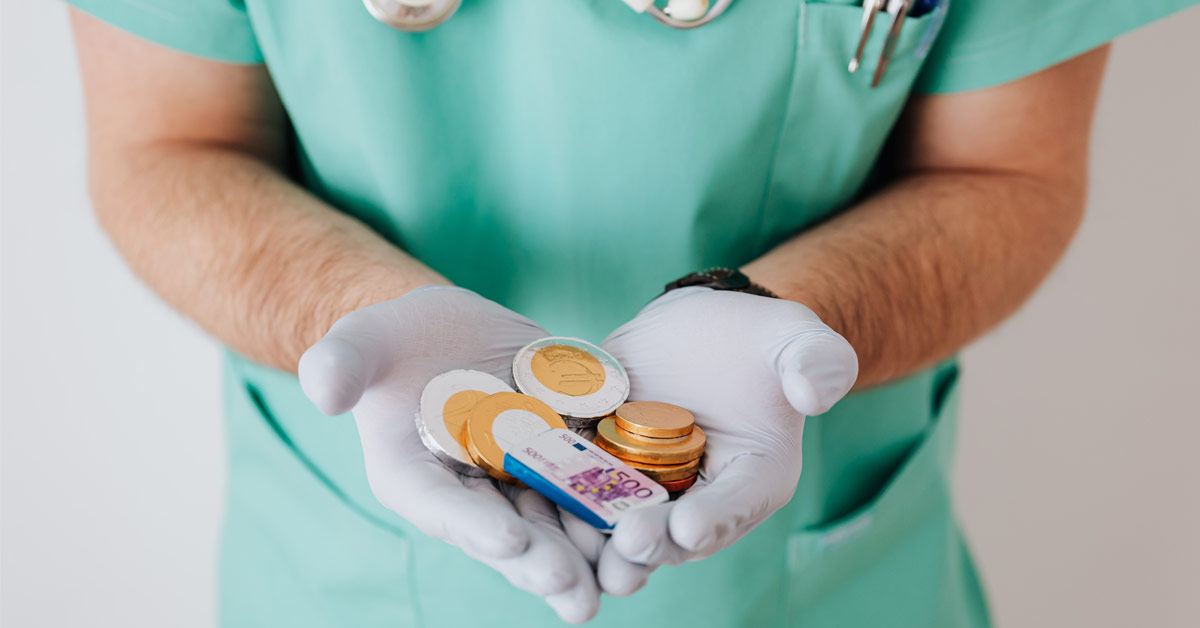You’ve already done the hard part and made it through university and internship. Now, you get to reap the rewards of the career you worked so hard for and the hefty salary that comes with it.
But you have to be smart with your money to avoid living outside your means. Chances are, you already have a lot of educational debt, like 76-89% of your colleagues. The last thing you want to do is to get in over your head by trying to have everything at once.
Yes, your salary is nice. So your goal should be to use it wisely.
It’s possible to enjoy the good life while you also live on sound financial principles. You can make that happen by using these tips to teach yourself to succeed with money as a physician.
1. Pay Off Your Debt
Step one in any successful financial plan is to get rid of your existing debt.
Before you do anything else, take a thorough look at your current debt level. How can you reasonably and feasibly get rid of it?
This step is different for everyone. It includes variables like the type of debt, how much you owe, and how far into your career (and from retirement) you are.
If it seems manageable on your own, and you can likely get rid of your debt within a year or two, create a plan and get started. Otherwise, you might want to talk to a financial advisor to learn your options.
2. Don’t Get Into More Debt
This part sounds easy, but it can be quite tricky to master. While you’re trying to get out of debt, don’t put yourself further into it.
Barring emergencies, don’t make any significant purchases. If you have to buy something, use cash (or your debit card) only.
Cut up your credit cards. Your checking account connects to the debit card, which does the same thing as a credit card without the added interest.
During this time of paying off debt, you’re learning to live within your means. This period of personal growth will help you continue to stay out of debt, even once your bills are taken care of.
3. Analyze Your Financial Options
Are you happy with your current salary, or would you like to make a little (or a lot) more? When you research your options, you might find out that you’re not making as much as you could be.
If you’re currently working for someone else, opening your own practice could be a risk worth taking, depending on your location and market.
Should you decide to stay where you are, it can’t hurt to ask for a raise. Get your documentation together that shows why you deserve more money or better benefits and give it a shot!
If neither of those options works, look into getting a side hustle. Emergency room physicians and locum tenens doctors are in demand all over the world.
You could also consider making the choice to go back to school to get an added certification in a field that pays more money. Keep track of your financial options, and continually set goals to improve.
4. Get Insurance Coverage
Why is insurance one of the top keys to financial success? It’s simple, really. You have assets, and you need to protect them.
As a doctor, if you can’t work, you likely don’t get paid. If you do, it’s at a reduced rate. And if you or your family member gets sick, the cost can be a hefty hit to your bank account.
Disability insurance, life insurance coverage, and health insurance are three of the essential policies you should have for your personal asset protection.
You already have NSO malpractice and other liability insurance at work. Don’t overlook the need to care for your family and future, too. The right insurance policy won’t make a big dent in your monthly salary, but it could be a huge lifesaver if it’s ever needed.
Conclusion
You work hard for your money. Still, at some point, you should be adopting the “work smarter, not harder” action plan.
With these tips, you’ll be able to enjoy your financial freedom. Because you’re not overwhelmed with debt, you can limit your working hours, change careers based on your passion, and get to live the good life.





